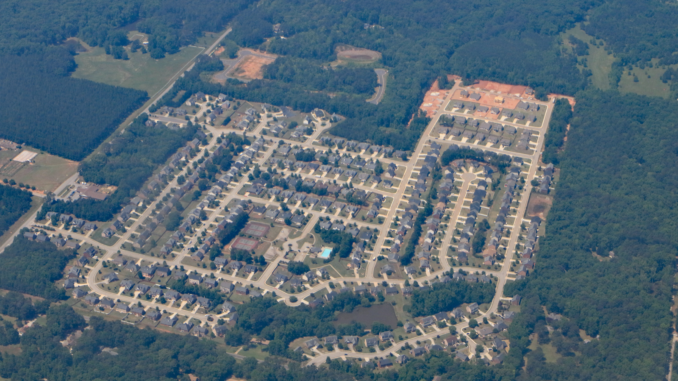
Concerns and complaints about traffic congestion are often the top discussion anytime there’s mention of new development. But Georgia case law does not permit local counties and cities to consider traffic when making a zoning decision.
Why is that? Let’s take a look.
Victoria Corp. vs Atlanta Merchandise Mart
The most referenced case affecting court precedent on traffic issues is from 1960. At the time, Victoria Corporation filed suit seeking to stop construction of Atlanta Merchandise Mart. The new business had received zoning variances from the city of Atlanta in order to build. The parties involved aren’t crucial to know, but the court’s decision established the precedent Georgia follows today.
First, for Georgia courts to stop a zoning decision, an aggrieved property owner must show the planned development will cause significant damages to their property. Georgia considers an aggrieved property owner to be an immediately adjacent land owner. Significant damages are generally characterized as a significant loss in property value (20–25% or more), testified to by a land appraiser or similar industry expert.
In 1960, the Georgia Court of Appeals wrote the following:
The mere increase in traffic congestion next to one’s property because of [new development] on nearby property and the attendant inconvenience resulting therefrom are damages suffered alike by all property owners similarly situated, does not give to one individual such a substantial interest in the [zoning decision] as to cause an appeal therefrom.
[Traffic congestion] is a condition of urban living. It is merely the result of normal, urban growth and development. To hold that such an inconvenience would give to any resident or property holder the right to override the [zoning decision] any time such property owner or resident disagreed with such decision would be a dangerous precedent to establish. It would result in materially slowing, if not completely stopping, the inevitable and necessary growth of large modern cities.
Georgia Court of Appeals, 1960, sourced from law.justia.com.
In summary, traffic congestion alone does not cause property damages to warrant stopping a zoning decision. The courts found traffic congestion was an aspect of growth and cities; to limit new construction because of traffic would slow and possibly stop modern development.
Featured image shows an aerial photo of a subdivision. Stock photo.
Support Local Journalism
Subscribe to MHF News and support local journalism in the Henry County community.
You will receive access to all of our news articles.
